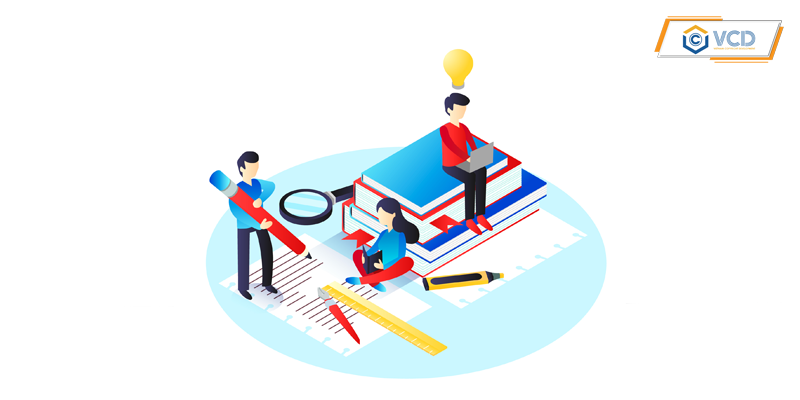Who is the copyright owner of the learning materials?
In modern education, learning materials play a role as the foundation bricks, building the learning and research careers of students and lecturers. Although learning materials can be produced in many different forms from traditional textbooks to digital documents. However, a question arises “Who owns the copyright to that learning material?”. The following article of VCD will help you.
1. What are learning materials?
Learning materials are understood as all documents serving the purposes of learning, research and teaching. Learning materials include: textbooks, lectures, monographs, scientific research results, newspapers, specialized magazines, theses, dissertations, scientific conference proceedings, internship reports, reality and other specialized documents.
Pursuant to the provisions of Clause 2, Article 2 of Circular 11/2018/TT-BGDDT on criteria for determining specialized goods directly serving education issued by the Ministry of Education and Training, the definition of learning materials is as follows:
Learning materials are physical means that store, carry or reflect learning and research content. Learning materials can be used in traditional forms (pictures, card-shaped photos) and electronic learning materials. Electronic learning materials are learning materials digitized according to a certain format and scenario architecture, stored on electronic devices such as CDs, USBs, computers, computer networks to serve teaching and learning. Digitized forms can be text, data tables, audio, images, videos, computer software and a mixture of the above formats.
According to the provisions of the Law on Intellectual Property, learning materials are a specific form of literary and scientific works protected by the State, expressed in the form of textbooks or lectures expressed in written form, speeches, lectures, other speeches in spoken language and shaped in a certain material form.

2. Who owns the copyright to learning materials?
According to Clause 2, Article 4 of the Law on Intellectual Property 2005 (amended and supplemented in 2009, 2019), copyright is the right of organizations and individuals to works they create or own.
In which, the subject of copyright includes literary, artistic, and scientific works; the subject of rights related to copyright includes performances, audio recordings, video recordings, broadcast programs, and satellite signals carrying encrypted programs. Copyright to works includes personal rights and property rights.
Universities often own a variety of learning materials such as textbooks, study materials, internal documents, guidance documents, review documents, lectures, radio lectures, online lectures, LMS lectures, reference books, and multimedia lectures. In addition, recorded online lectures and videos of lecturers are also considered learning materials.
According to the provisions of the Intellectual Property Law, lecturers who compile learning materials will be the authors or owners of the learning materials. However, in cases where lecturers are not the authors and owners, the university may become the owners if the learning materials are created by the school hiring or assigning tasks to lecturers. In this case, the university will hold the copyright. If the university is the author, the board of directors will have the right to name, modify, and supplement the content of the learning materials. If the board appointed by the board of directors to review and revise the learning materials does not include the lecturers, do they have the right to arbitrarily revise the content?
Therefore, consider the provisions on authors, according to which the author holds personal rights such as: the right to name the work, the right to publish, and to protect the integrity of the work. The author is also the owner of the copyright and can transfer the right to publish to others. Thus, the university cannot become the author of the learning materials; the lecturer, the compiler, is the author.
From the above provisions, the university is not the author but can only be the owner if the school assigns the work or receives the transfer of ownership from the lecturer. The Intellectual Property Law classifies owners, including: authors, co-authors, organizations or individuals assigning tasks to the author, heirs, and transferees of copyright. Therefore, the university can be the owner of the learning materials if the university assigns the task or signs a contract with the lecturer.
If the university is the copyright owner, they will hold one or more property rights, such as making derivative learning materials, copying, distributing, and publishing the learning materials. Meanwhile, the lecturer, as the author, will hold the moral rights but is not the owner because he has transferred the ownership of the property to the university.
Above is the article “Who is the copyright owner of learning materials?” that VCD sent to you. We hope this article is useful to you.
Sincerely,
